 |
| Startup products participating in the 2025 trade exchange event. Photo: Vuong The |
To overcome the above dual challenges, the business community hopes for flexible policies to protect domestically produced products in a sustainable manner.
Many difficulties at once
Since the beginning of the year, the business community in general, especially small and medium enterprises, have faced many pressures. First of all, the issue of tariffs from the US, which affects almost every country in the world , not just Vietnam. Many Vietnamese products have also had their import tariffs raised by the US, and the Government and relevant agencies are actively negotiating to find solutions to cool things down.
For example, the wood industry is one of the industries with a high proportion of exports to the US, up to 55.6% of total wood export turnover in the first 5 months of the year, with more than 3.7 billion USD. Although currently, businesses are both trying to boost deliveries to the US and expecting the official reciprocal tax to be at an acceptable level, there is a new concern: since the beginning of June, the US Department of Commerce has received a request for anti-dumping and anti-subsidy investigations on hardwood plywood and decorative wood products imported from Vietnam, China and Indonesia. Of which, more than 130 Vietnamese businesses have been named.
| In the long term, the domestic market needs to be restructured to prioritize Vietnamese goods, first of all, modern distribution systems, from wholesale markets to supermarkets, have policies to prioritize displaying and distributing domestic goods to make them more accessible to consumers. |
In addition, when the US imposed import tariffs on many countries, especially China, the world's manufacturing factory, its consumer goods sought to be released into other markets. Vietnam is a neighboring country, China's gateway to Southeast Asia, so it is one of the first countries to be affected.
According to Mr. Phan Van Tu, Director of Kim Vinh Thang Company (Ho Nai Industrial Park, Trang Bom District), previously, products of units in the supporting industry were already under great competitive pressure from goods from China, but now that pressure will be heavier. High production costs and weak mass production capacity are still major limitations for small and medium enterprises when competing with imported products, so market share will also be at risk of gradually decreasing.
Not only the manufacturing industry but also consumption and wholesale are affected. Ms. Mai Anh Dao, a fashion retailer in Bien Hoa city, said that purchasing power has gradually decreased. Traditional markets and stores, even at cost price, cannot compete in price with clothing sold on e-commerce platforms, which is the competitive advantage of Chinese brands. Many times, when ordering domestically, the delivery time is even longer than from other countries.
 |
| Members of the Dong Nai Young Entrepreneurs Association learn about the products of a business in the association. Photo: V.Gia |
Cross-border orders pouring into Vietnam are creating huge competitive pressure, putting domestic enterprises in a difficult position. Meanwhile, domestic enterprises have to pay many types of taxes and fees, and even enterprises and online business households on platforms are at risk of having their taxes revoked if they have committed violations in the past.
Need solutions to better protect businesses
Due to having to bear additional policy costs, the actual operating costs per order of domestic sellers are higher than those of foreign sellers, especially for products sold on e-commerce platforms. This forces them to add costs to the selling price. Meanwhile, foreign goods can be sold at a cheaper price and still make a profit, easily dominating the market thanks to the psychology of preferring cheap prices and tightening spending, the price difference is a big advantage.
In fact, the resilience of enterprises has been continuously eroded over the past few years. Faced with difficulties, the business community wants the State to have synchronous, specific, and flexible policies to support, especially small and medium enterprises, which cannot swim against the current without help. Accordingly, instead of spreading support, the State needs to classify enterprises according to size and develop specialized policies for each group.
Small and medium-sized enterprises want to remove the bottleneck in accessing capital, need an open credit rating solution to have a good credit profile to be able to borrow capital without collateral. The fact that the State and functional agencies have recently implemented solutions to make business activities transparent, crack down on fraudulent traders, and eliminate counterfeit goods has received much attention from enterprises and the community. Enterprises also need fair "rules of the game" to protect genuine manufacturers. Accordingly, there needs to be a comprehensive strategy, coordinating from policy, credit, distribution to communication to "liberate" Vietnamese goods from the current situation, restore market confidence and create new momentum for production.
Van Gia
Source: https://baodongnai.com.vn/kinh-te/202506/doanh-nghiep-voi-moi-lo-kep-a0b128d/











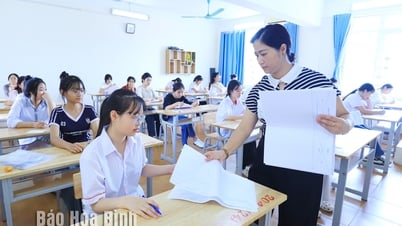










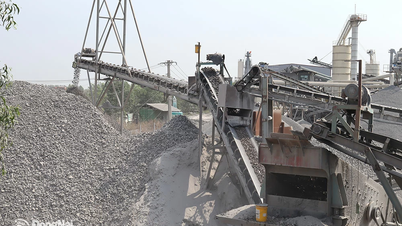

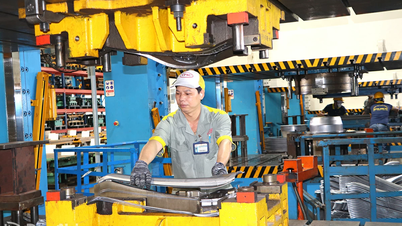


































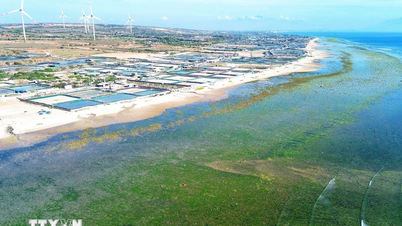












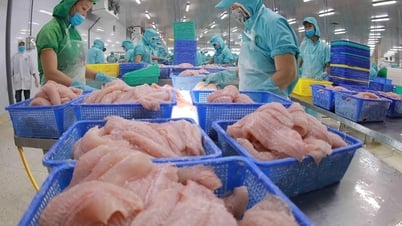

























Comment (0)